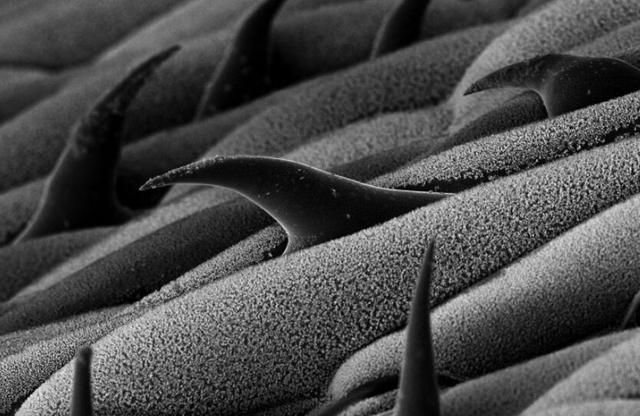Modern evolutionary theory suggests that all existing organisms on earth evolved over a long period of time from those primitive beings. If the changes are conducive to better survival and reproduction, then they will pass the test of "Natural selection" And be preserved and passed on from generation to generation, while otherwise they will be eliminated by "Natural selection".
This description raises all sorts of questions, such as the question: If evolution is correct, why have plants not evolved to be unpalatable? And why do some plants even produce sweet-smelling fruit?

In fact, most of the plants that we think are tasty have actually been selected by artificial selection over hundreds or even thousands of years. The plants evolved in the direction of the "Tasty" Ones through human intervention.
In the case of wild plants in nature, they have in fact been evolving in the direction of 'unpalatable', a typical example being the most common plant in nature - grass.

In addition to the fact that grasses look green and tender, their stems and leaves are covered with extremely coarse plant fibres, they also absorb silica from the soil and build it into the surface of their stems and leaves, and in addition to this, many grasses have a large number of hard, keratinised barbs on their blades.
Such a structure not only makes grasses very difficult to eat, but also causes a lot of wear and tear on the teeth of animals, making them very difficult to digest even when swallowed by them, thus showing that after a long time grasses have actually evolved to be very difficult to eat.

(microstructure of grasses)
The evolutionary route of grasses has actually been somewhat successful, and fossil evidence suggests that one of the major reasons why plants like grasses used to proliferate across the surface of the earth during the eocene was that many of the phytophagous animals on earth at the time were simply unable to feed on grass.
Yet we all know that on modern earth, grass is the mainstay of herbivores' diet, so why were they able to eat it?
The reason is, of course, that they have evolved the ability to digest grass. For example, herbivores such as horses have evolved highly resistant high-crowned teeth and a well-developed gut system that allows them to finely chew the stems and leaves of grass and digest them through a well-developed gut system, while herbivores such as cattle have evolved a more powerful digestive ability than horses, although their teeth are not as resistant to wear and tear --ruminate.
Cattle have four stomachs, three of which are "Pseudo-stomachs" Evolved from their oesophagus: The rumen, the reticulum and the retruded stomach, of which the rumen is the largest and the other is the real stomach of the cow, the crumpled stomach.
After a period of time, the grass they have swallowed becomes softer and easier to chew, after which it is returned to the cow's mouth through retrograde vomiting.
After being chewed by the cattle, the grass is then fed into two other 'false stomachs' for further processing to make it more digestible, before it is fed into the cow's wrinkled stomach and the intestinal system behind it, where it is digested and absorbed.
In the case of grasses, other plants on the planet have evolved various defensive strategies to avoid being eaten by animals, and since food is essential for survival, those that feed on plants have had to evolve with them.
No matter how unpalatable the plant, phytophagous animals had to evolve the ability to eat one of nature's common plants, otherwise they would not have been able to survive and thrive in nature, such as the cactus, a common desert plant, and camels had to evolve the ability to eat this spiky plant if they were to survive in the desert, which they did.

(pictured is a camel munching on a cactus)
In evolutionary terms, if plants have been evolving in the direction of being 'unpalatable', then why do some plants still produce sweet-smelling fruit? There is a good explanation.
These fruits actually contain the seeds of the plant, which are difficult for animals to digest, so when the animal eats the fruit, most of these seeds are excreted intact by the animal, and if they fall in a suitable environment, they can branch out in a new area.

This means that the seeds of the plants are able to use the mobility of the animals, so that the plant population can spread at a faster rate and thus "Survive and reproduce better". In other words, the purpose of the fruits of these plants is to attract animals to eat them, which is in fact a kind of exploitation of the animals by the plants, who, on the other hand, do not mind being exploited by the plants, as they have sweet fruits to eat.


